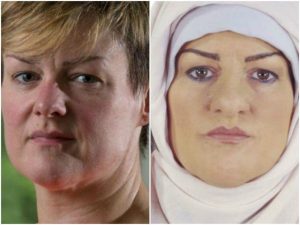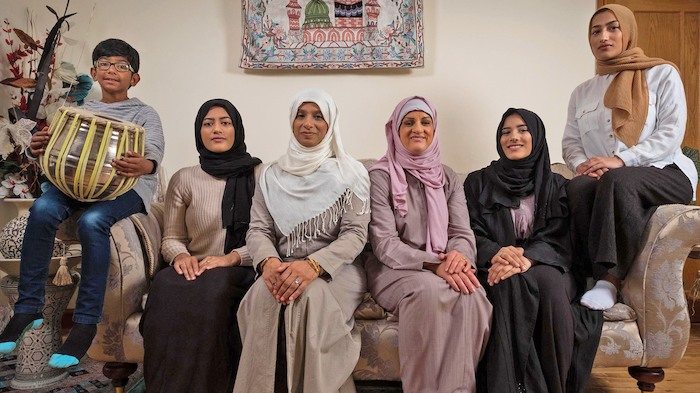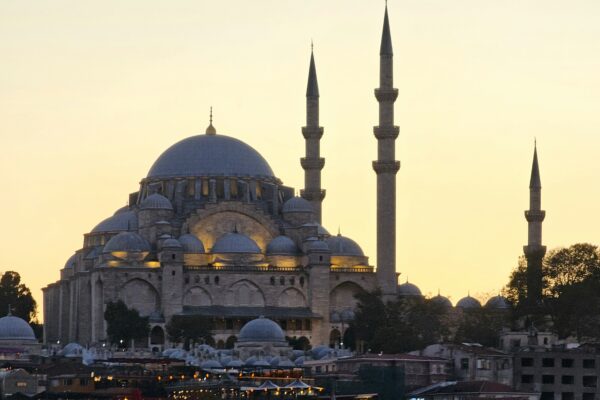It’s a great reminder that we need to focus on what unites us, and we can do so by interacting with each-other.
It’s a great reminder that we need to focus on what unites us, and we can do so by interacting with each-other.
Unfortunately, Muslims and TV never go together well. Television itself relies on sensationalism, and watching normal every-day Muslims work 9-5 and come home to a cup of tea will, unfortunately, never be entertaining.
More recently, BBC Two’s attempt to depict the Muslim narrative backfired with their programme ‘Muslims Like Us’ – the first issue being obvious in the title itself. By embracing the idea that Muslims are the ‘other’ in the first place – regardless of what the conclusion is – the foundation is already set for the idea that the Muslim identity is not in line with the British/Western identity.
Can you imagine a show called ‘Jews Like Us’ or ‘Blacks Like Us’?
Such a show would be downright offensive, but unfortunately we live in an age where ‘Muslims Like Us’ is not. It is in this climate that My Week as a Muslim entered our living rooms.
My Week as a Muslim takes a (seemingly typical) anti-immigration and mildly Islamophobic white woman from the Midlands and asks her to spend the week undercover as a Pakistani Muslim. To the producer’s credit, the intention of the show is admirable and unique: speak to the ordinary people who hold fear and mistrust of Muslims due to the scapegoating of Muslims in the media. Fozia Khan says, “Often, when making documentaries, you feel you are preaching to the converted. I was determined to make something that would reach people who wouldn’t normally watch a programme about Muslims.”
 The producers decided to brown-face Mrs. Freeman in an effort to make her ‘more ethnic’. It’s here that the show received its major backlash. Anyone familiar with the history of Blackface and media would appreciate how deeply offensive it is. Khan defends this by saying, “The reason for the prosthetic nose, teeth and contact lenses was simple – to make Katie look and feel different, so she could go unrecognised in her home town, convincingly experience what it’s like to be a Muslim woman, integrate her into her host community and experience it from within.”
The producers decided to brown-face Mrs. Freeman in an effort to make her ‘more ethnic’. It’s here that the show received its major backlash. Anyone familiar with the history of Blackface and media would appreciate how deeply offensive it is. Khan defends this by saying, “The reason for the prosthetic nose, teeth and contact lenses was simple – to make Katie look and feel different, so she could go unrecognised in her home town, convincingly experience what it’s like to be a Muslim woman, integrate her into her host community and experience it from within.”
Granted, it may have been well-intentioned, but a debate rises as to why it is necessary – considering both Muslims and Pakistanis can be from a wide range of skin tones. A similar film to My Week as a Muslim was a wonderful episode of Morgan Spurlock’s 30 Days, where a red-neck white American spent 30 days in a Muslim community. It wasn’t at all necessary for him to change his skin tone to assimilate, and dressing him up in traditional Arab/Muslim attire was enough for him to face profiling that American Muslims face all the time.
Dressing Mrs. Freeman in Pakistani-Muslim attire would have been more than enough to make people feel like she’s part of the community. I wouldn’t look at my white-faced cousin and feel she doesn’t belong to a Pakistani Muslim community because she lacks brown skin, and neither would anyone else, so I feel this was something that really should have been avoided.

The filming of the show dramatically coincides with the Manchester bombing, where an ISIS wannabe attacked a Ariana Grande concert – killing 22. While it is unfortunate that the link between Muslims and terrorism card is drawn yet again, at least this time it is a result of unfortunate circumstance that sheds light on the horrible treatment that Muslims face in this country.
Freeman herself, dressed in full Muslim attire, faces racial slurs and offensive language when walking by a pub, an establishment she would usually fit in perfectly had she been dressed as herself. Saima Alvi, who Freeman stays with during the course of the show, is shown visibly anguished by the bombing, offering an incredibly rare insight to a Muslim’s reaction to Islamist terror attacks. Even more fascinating, and incredibly hard to watch, are the community’s standard protocol changes to their day-to-day life in the attack’s aftermath – don’t spend too much time outside, don’t take public transport, be careful generally in public. It’s an intimate look into what it’s really like to be a Muslim in the racist backlash that follows an attack.
Freeman’s internal transformation over the course of the show is deeply fascinating to watch, and it is portrayed very well.
It’s a classic example of breaking boundaries by breaking bread, and though Mrs. Freeman doesn’t fully understand the cultural and religious practices of the Alvi family and the surrounding community, she does begin to appreciate the similarities between them and just how British the family are. In one particularly wonderful scene, Freeman sees the Alvi family without their hijabs for the first time and in their fancy attire. Watching a closed door from outside the room, we can hear the joyous shock in Mrs. Freeman’s voice as she truly realises that Muslims are just like everyone else.
https://www.youtube.com/watch?v=APJswxETtTY
In this sense, the show does a great job of portraying British Muslims, and will do a fantastic job of showing its targeting audience – that being middle class White Britain – that Muslims, though in some ways culturally unique, are just like everyone else, and they experience racism and bigotry more than any other minority in the country. It’s a great reminder that we need to focus on what unites us, and we can do so by interacting with each-other.
However, it is worth acknowledging that maybe the best way to counter anti-Muslim sentiment in this country is to normalise them in the media. This means not creating programmes that show them as alienated from the rest of Britain, even if inadvertently. We’ve had plenty of programming that tackles what it means to be a Muslim in Britain today, but it is time to move on from fascination with the “other” and represent Muslims as a part of Britain.
Let’s have some programming about the integrated communities of our country, the communities where a Muslim’s identity doesn’t concern a non-Muslim, and programmes that feature Muslims without having to specifically be about whether or not they are truly British, or emphasise that they are not a part of extremism or terrorism (i.e., let’s talk about Muslims without having to talk about terrorism, as if the two are inseparable). Yes, there is a sense of Muslims being the “other” in our country, but media sensationalism is a massive reason for this, and it’s important to appreciate that. If you defeat this idea in the media, you defeat this idea in Britain.
The show was great, the message is great, and the intentions of the producers are admirable, and granted, this will impact an audience that isn’t me or my community, but it is a short-term win. Next, let’s aim for a long-term win, and show that Muslims aren’t like us, rather they are us.





